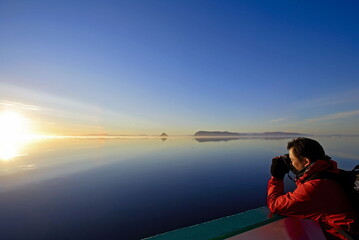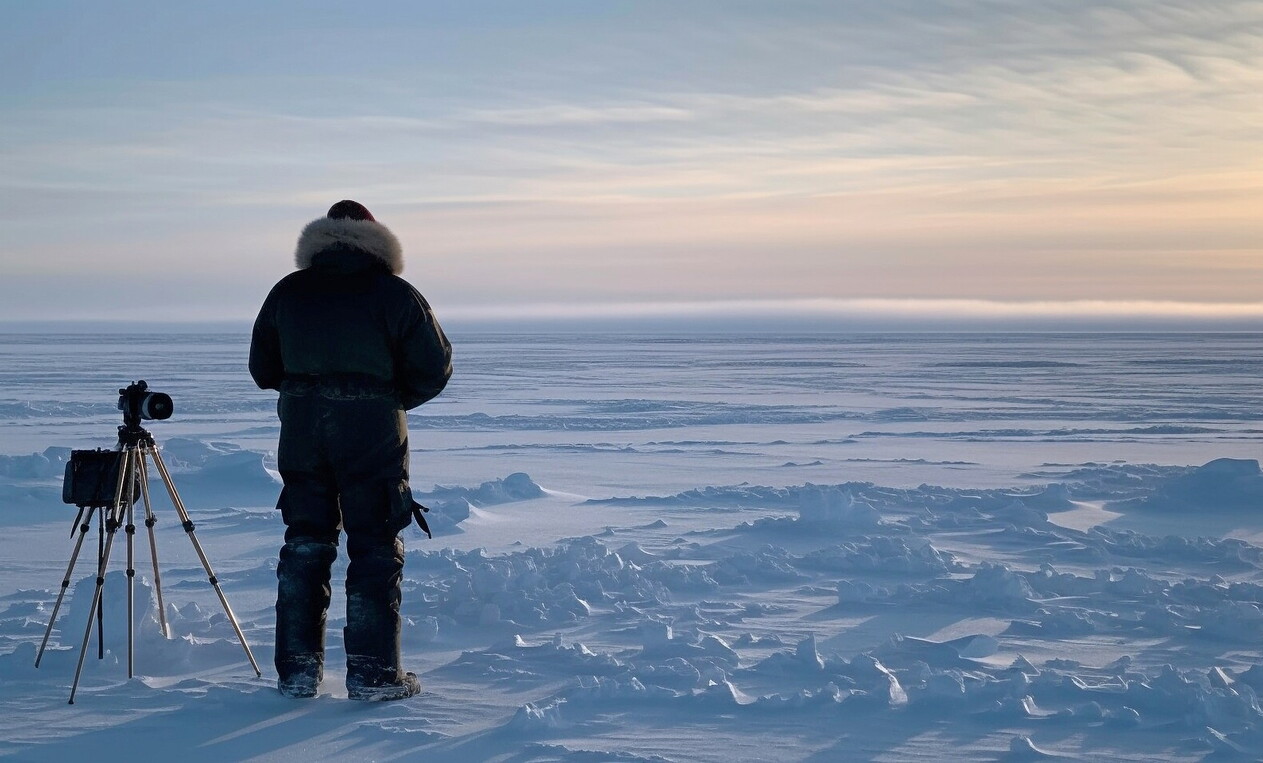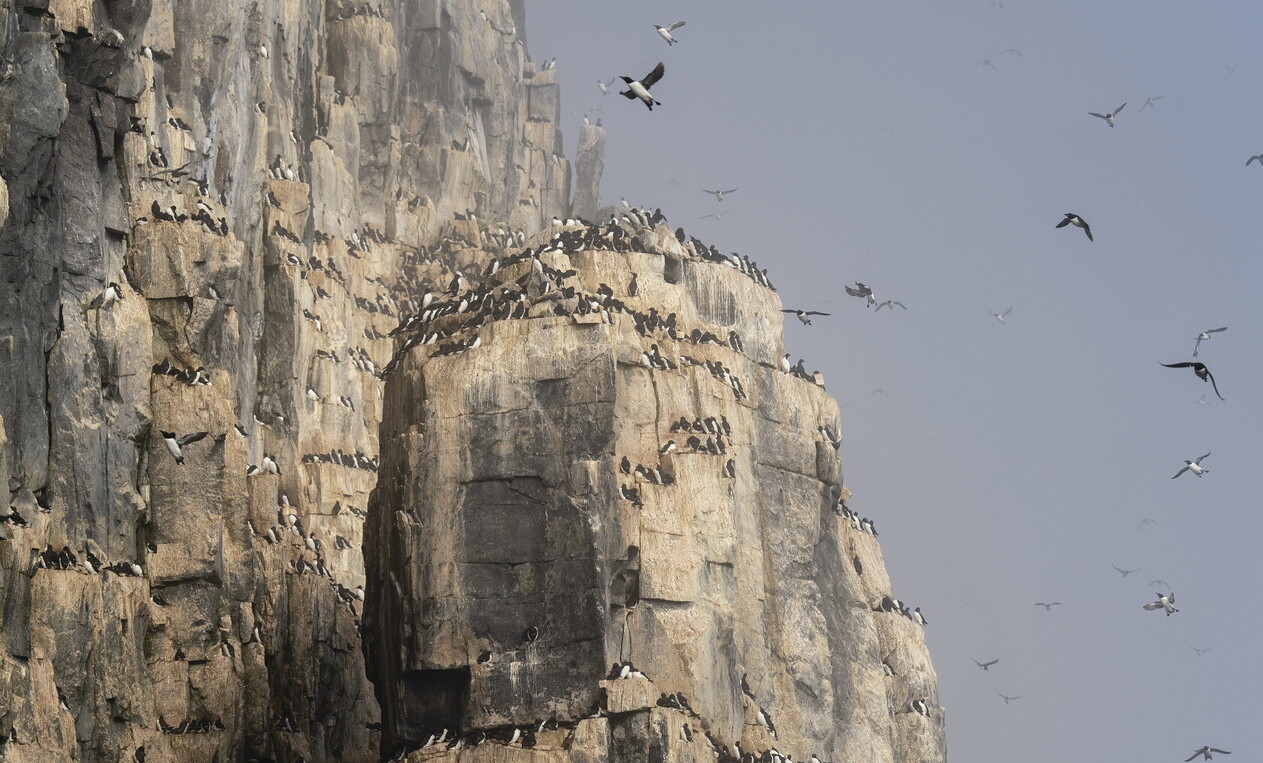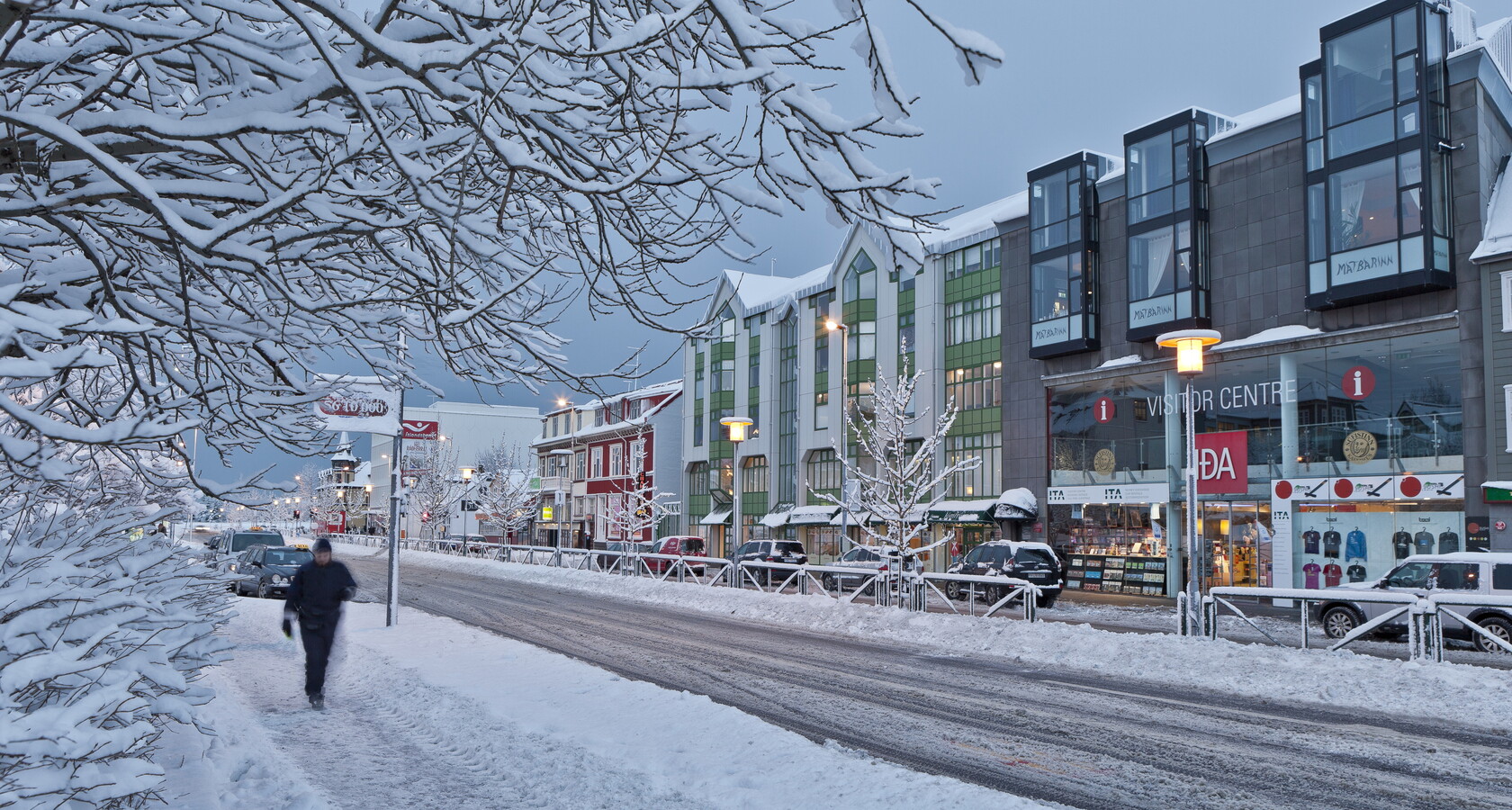
Sustainability at the centre
The Italian strategy
With a long tradition of exploration and scientific research, Italy is strengthening its role in the Arctic. The new national guidelines aim to contribute to the sustainable management and safety of the region
9 minThe Arctic has recently been gaining increasing space in the Italian public and media debate, when the geopolitical game underway between the major powers has drawn the attention of civil society to the issues of rapid transformation of the Arctic region caused by climate change.
The increasing accessibility of the Arctic, favored by the gradual melting of the ice, which will be perhaps irreversible in the coming decades, opens up new prospects for the use of its energy, mineral and fishing resources and for shipping routes that become passable for increasingly longer periods of the year. The case of Greenland is symptomatic of these changes. The island is shedding its ice cap into the sea at an increasing rate, with consequences for the climate, Atlantic currents and rising sea levels. At the same time, its enormous mineral resources, some of which are essential for the green transition and independence from carbon, are becoming explorable and fueling international competition. A place once remote and forgotten becomes a laboratory of inestimable significance for the future of the planet.
An ancient attraction
The current rapid developments make it imperative for Italy to become aware that the Arctic is not far away, not only geographically but also in terms of direct repercussions on the lives of future generations. In this sense, the attraction that the Arctic—even when it seemed a remote and hostile place—exerted on many Italians inspired a long tradition of Arctic friendship. We are fortunate to have extensive knowledge of the sea, being in the center of the Mediterranean, and the glaciers on our Alps. The sea and the ice are the founding elements of the Arctic and the Italians have demonstrated that they know how to study and understand them better than other populations. A first major piece of our engagement is our hundreds of years of exploration in the Arctic, which began with the expeditions of the Duke of Abruzzi and Umberto Nobile with his Dirigible and later continued thanks to the work of anthropologists such as Silvio Zavatti and mountaineers such as Guido Monzino, just to mention the leading figures of most famous enterprises.

I
n parallel with this still very symbolic heritage, a scientific commitment of considerable importance has been consolidated over the last few decades, as demonstrated by the opening in 1990 of the Thule High Arctic Atmospheric Observatory in Greenland and the establishment in 1997 of the Dirigibile Italia Scientific Station managed by the National Research Council (CNR) in Ny Alesund in the Svalbard Islands in Norway. These are very significant facilities in the two most important places in the Western Arctic, which ensure Italy a position of particular prestige within the international scientific community dedicated to the Arctic. These facilities, in particular the station in the Svalbard Islands which has become our most important and varied showcase, are constantly taking on new projects and are based on the dedication of scientific institutions of excellence such as CNR, the government-sponsored research agency ENEA, the National Institute of Geophysics and Vulcanology (INGV), the National Institute of Oceanography and Applied Physics (OGS) and the Hydrographic Institute of the Italian Navy, whose now decades of High North campaigns with the research vessel Alliance have become a symbol and a flag of our Arctic dimension. The horizons of our scientists and researchers range from the study of the fragile Arctic ecosystem to paleoclimate reconstructions, atmospheric analysis, the collection of data on the water column and the mapping of the seabed. This research activity requires an increasingly holistic and multidisciplinary approach.
This consistent presence in the Arctic allowed Italy to present its successful candidacy to become an Observer in the Arctic Council, the main regional intergovernmental forum, with the role awarded in 2013. It was a timely and far-sighted choice, considering that the increased international conflict in recent years would have made it much more difficult to achieve this objective, which has favored our growing involvement in the dynamics of the Far North. Indeed, in the years since 2013, Italy has consolidated its scientific activities thanks to regular funding by the Italian government of an Arctic Research Program (PRA). The PRA has funded calls for research projects, calls for infrastructures, the creation of an open database and support for the creation of a PhD in polar sciences at Ca’ Foscari University in Venice. Among the other tools we have put in place to coordinate our efforts, there is also an Arctic Table, with the participation of ministries, research institutions and companies that meets periodically at the Ministry of Foreign Affairs in a consultative format, and an Arctic Scientific Committee, which operates in a narrower context with decision-making and guidance powers of the PRA. We must constantly demonstrate to the eight members of the Arctic Council our active contribution as an Observer country.

National guidelines
Joining the Arctic Council was also the impetus for creating a programmatic document on our commitment in the Arctic, called “Verso una strategia italiana per l’Artico – Linee Guida Nazionali” (Towards an Italian strategy for the Arctic – National Guidelines), which is currently being updated. By the end of 2025, subject to inter-ministerial agreement, we intend to adopt the new Italian Strategy for the Arctic which will have to deal with the current international challenges. The new document will continue to focus on sustainable development and the study of climate change, but adequate space will also be afforded to aspects of security and resilience and the fundamental principle of freedom of navigation.
A
t the same time, we are interested in participating more with our enterprises in the economic development of the region in a variety of sectors and in intensifying the knowledgeable and widespread dissemination of the Arctic issues of greatest interest. To this end, the Arctic Circle Forum—organized by the Ministry of Universities and Research (MUR) and the Ministry of Foreign Affairs (MAECI) in early 2026 in Rome—will constitute a milestone of Italian public diplomacy in the Arctic and will contribute to reflection on the current change of scenario in the region, which is happening much faster than we think.
When we talk about the Arctic today, we must be aware that we are facing a sort of new continent, which we are still exploring and which scientific research tells us is characterized by a particularly fragile ecosystem. Italy’s cooperative approach to international relations, the scientific expertise acquired over decades of analysis and data collection, integrated with the advanced technologies of companies such as Eni and other national champions, ensure we have the credibility to carve out a leading role among non-Arctic states, which aspire to raise their profile in a region that will be increasingly strategic and decisive for the future of the planet.

